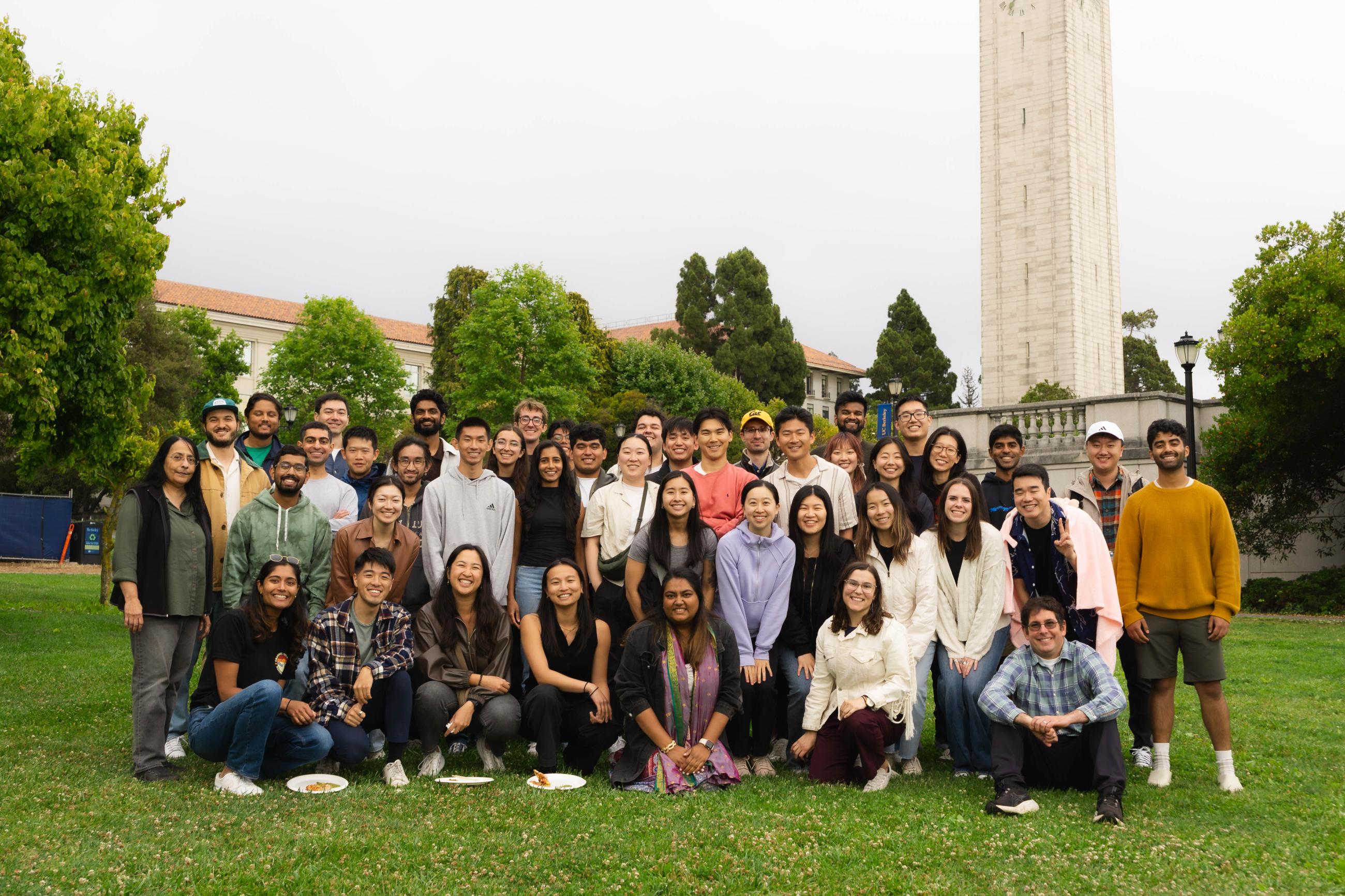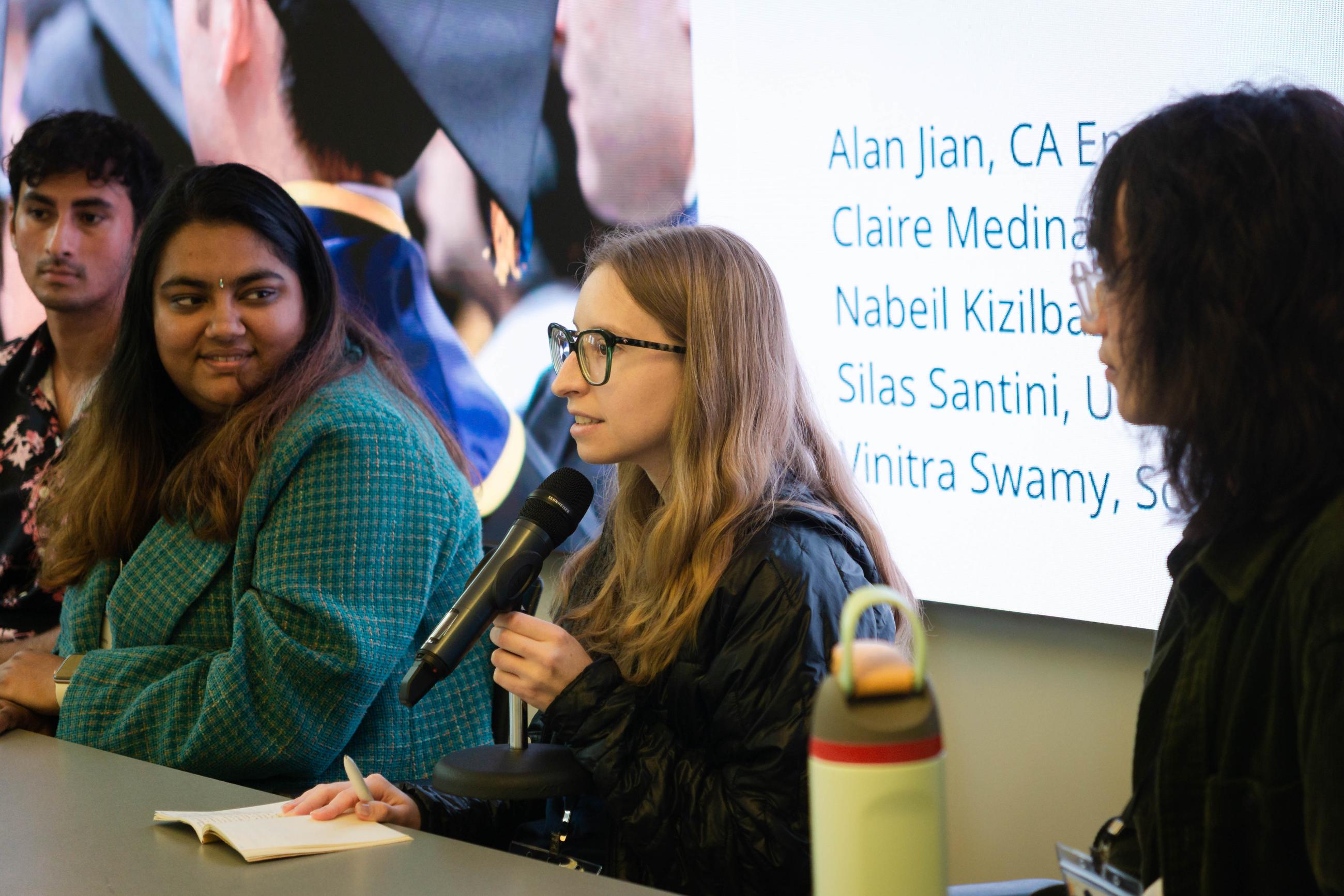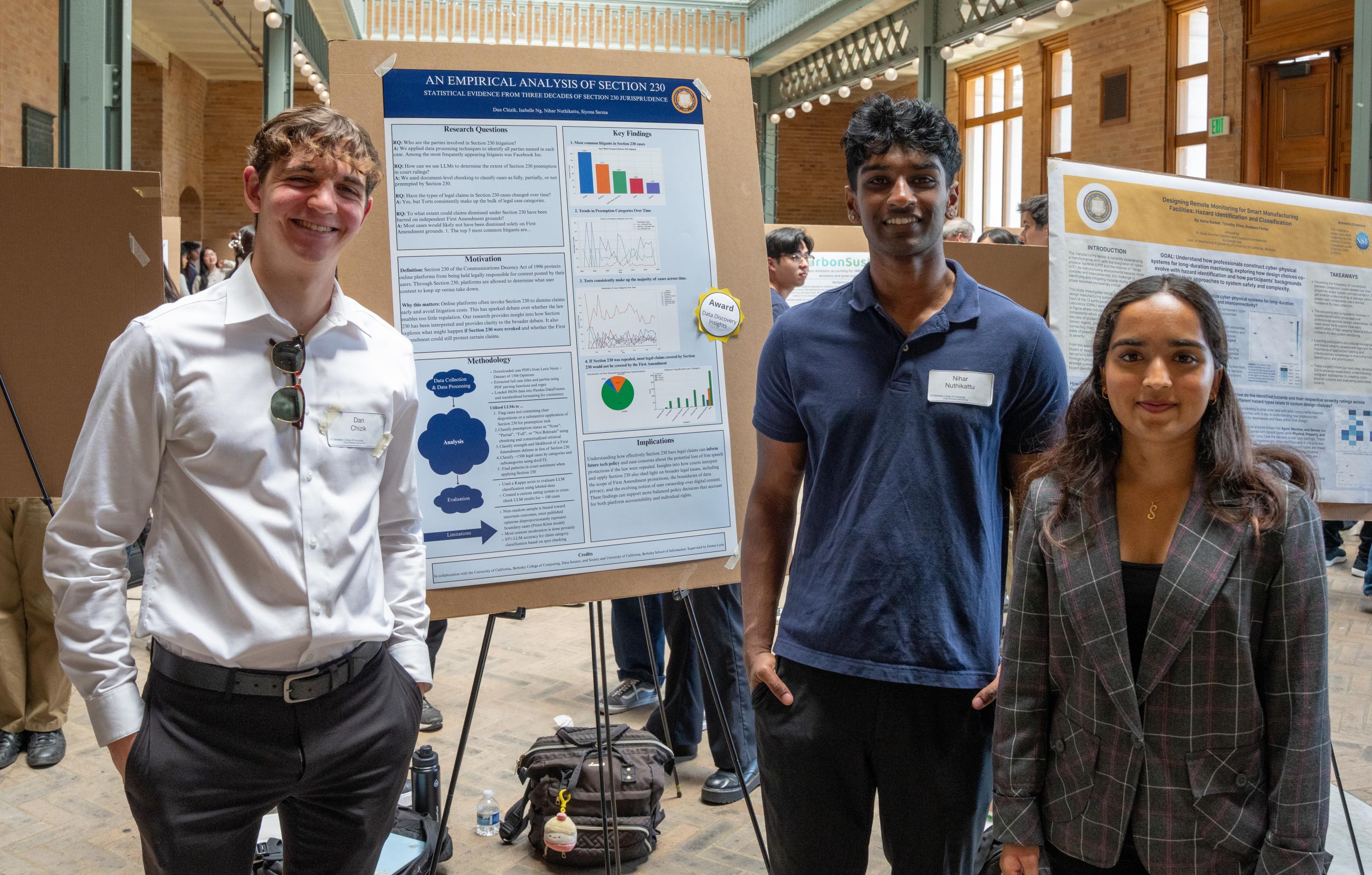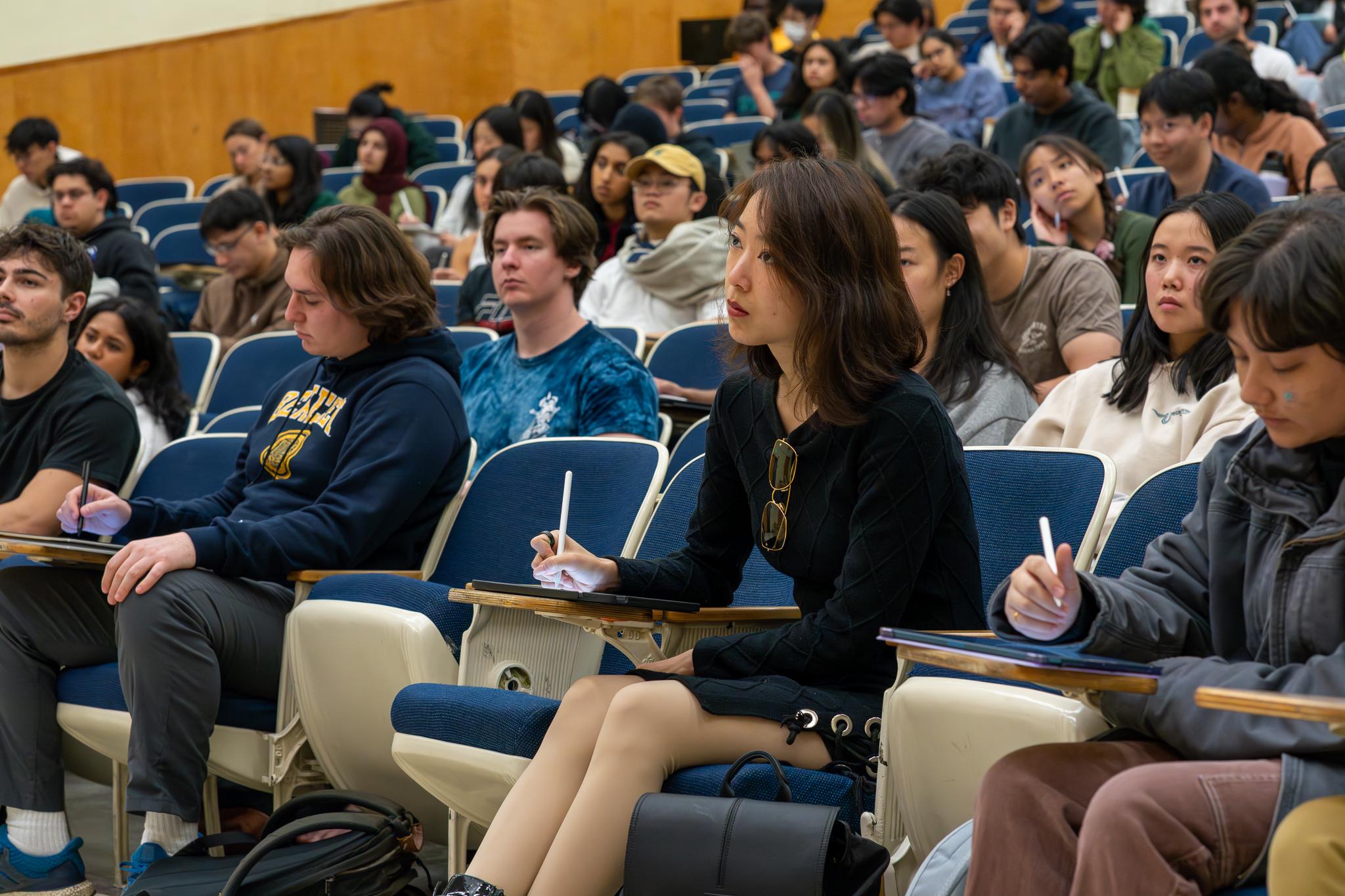
Ten years ago, UC Berkeley introduced Data 8: Foundations of Data Science, a course designed to be a widely accessible on-ramp to one of the 21st century's most essential fields. It has since grown into a campus-wide phenomenon, inspiring students from every major to see the world through a data-driven lens.
For the former course staff who helped the class flourish, the impact of Data 8 has been both professional and deeply personal. Their reflections highlight the course’s welcoming framework, collaboration culture and lasting influence.
A welcoming foundation
When Jonathan Ferrari, B.A. ‘24, first enrolled in Data 8, he had never written a line of code. “I remember being nervous,” he said. “I had no statistics or computer science exposure.”
That changed within weeks. The class’s balance of computation, statistics and real-world context made something click.
“Data 8 feels welcoming to students even without strong STEM backgrounds because we interweave it with learning about things that aren’t just computing and statistics,” he said. “We ease into the technical background but ground it in context. That makes it more accessible.”
Ferrari went on to major in data science and later became a student instructor, including multiple terms as lead TA. “The thing I find most rewarding,” he said, “is when I work with students who come in with no coding or statistics experience and leave wanting to do data science as a major.”
Today, a machine learning engineer at Box, Ferrari still turns to data-driven thinking. “If I have a problem in my daily life, I ask, ‘How can I solve this using data science?’ and I’ll spin up a Jupyter Notebook. It’s stuck with me to quantifiably answer questions that aren’t, on the surface, quantifiable.”
A meaningful collaboration between students and faculty
For Vinitra Swamy, B.A. ’17, M.S. '18, now CEO of Scholé AI, Data 8 was transformative from the start. She sat in on the course’s pilot offering and soon became one of its first teaching assistants.
Swamy became a key figure in Berkeley’s growing data science ecosystem, helping coordinate the expanding student instructor team.
“This kind of ecosystem – where students get the chance to become tutors and TAs – only happens at a place like Berkeley, where you have teaching at this scale and such passionate people. It’s brilliant.”
After Berkeley, Swamy worked at Microsoft AI and later co-founded Scholé AI, which reimagines personalized learning for the modern workforce. With her career bridging education and AI, she still sees Data 8’s influence everywhere.
“Data 8 is a little about the methods, but it’s really about the intuition behind them, and that’s even more important in this era of AI,” she said. “You can ask an LLM to do something, but what do you ask it to do? How do you know when it’s right or wrong? That’s what Data 8 teaches you: how to think deeply about data and technology.”
A hub of creative thinking
For Kevin Miao, B.A. ‘21, Data 8 launched a legacy of teaching. After spending his undergraduate career tutoring and teaching, he still returns during summers to lecture in data science classes, even while working full time as a senior machine learning research engineer at Apple.
“Because Data 8 attracts people from all backgrounds, you can’t assume the students know anything about the topic,” he said. “As a teacher, you have to explain a technical concept in the easiest way possible. That’s been useful in my career because data science isn’t just about math or coding, it’s about telling the story behind the data.”
Miao has found Berkeley’s data science culture to be uniquely creative and collaborative.
“Normally in STEM classes, it’s all people from STEM majors. But Data 8 brings together students from everywhere — people who study history or Celtic studies. When you mix those backgrounds with a shared interest in data, you get really interesting ideas.”
Interdisciplinary bridges
That same interdisciplinary spirit drew Lydia Sidhom, B.A. ‘25, to the class. As a social sciences major, she was intrigued by the idea that data could illuminate social issues. Her pathway into data science was solidified in a real-world project on criminal case resentencing through the Data Discovery Program.
“I was able to actually contribute having only taken Data 8,” she said. “That class teaches you how to think about data – the right questions to ask and why. You can figure out so much from there.”
Now a data journalist at the Washington Post, Sidhom still applies those lessons daily. “Something that Berkeley’s data science program does really well is teach you how to communicate your findings,” she said. “Whether I’m explaining my data to another reporter or using it to shape a story of my own, I draw on those skills constantly.”
A legacy in progress
Across their diverse paths, Data 8 didn’t just teach these alumni how to analyze data. It taught them how to think, communicate and collaborate across disciplines.
Ten years on, the course continues to welcome students from every corner of campus, inviting them to ask questions, find meaning in data and imagine new ways to use it. As Swamy put it, “It’s brilliant.”
This October 2025, help expand access to the #1-ranked data science program in the country and providing meaningful leadership opportunities for students by supporting paid student instructor and tutor roles.
A gift of any size to our crowdfund is a meaningful investment in data science instruction at Berkeley, supporting students in all disciplines prepare for a data-driven world.



